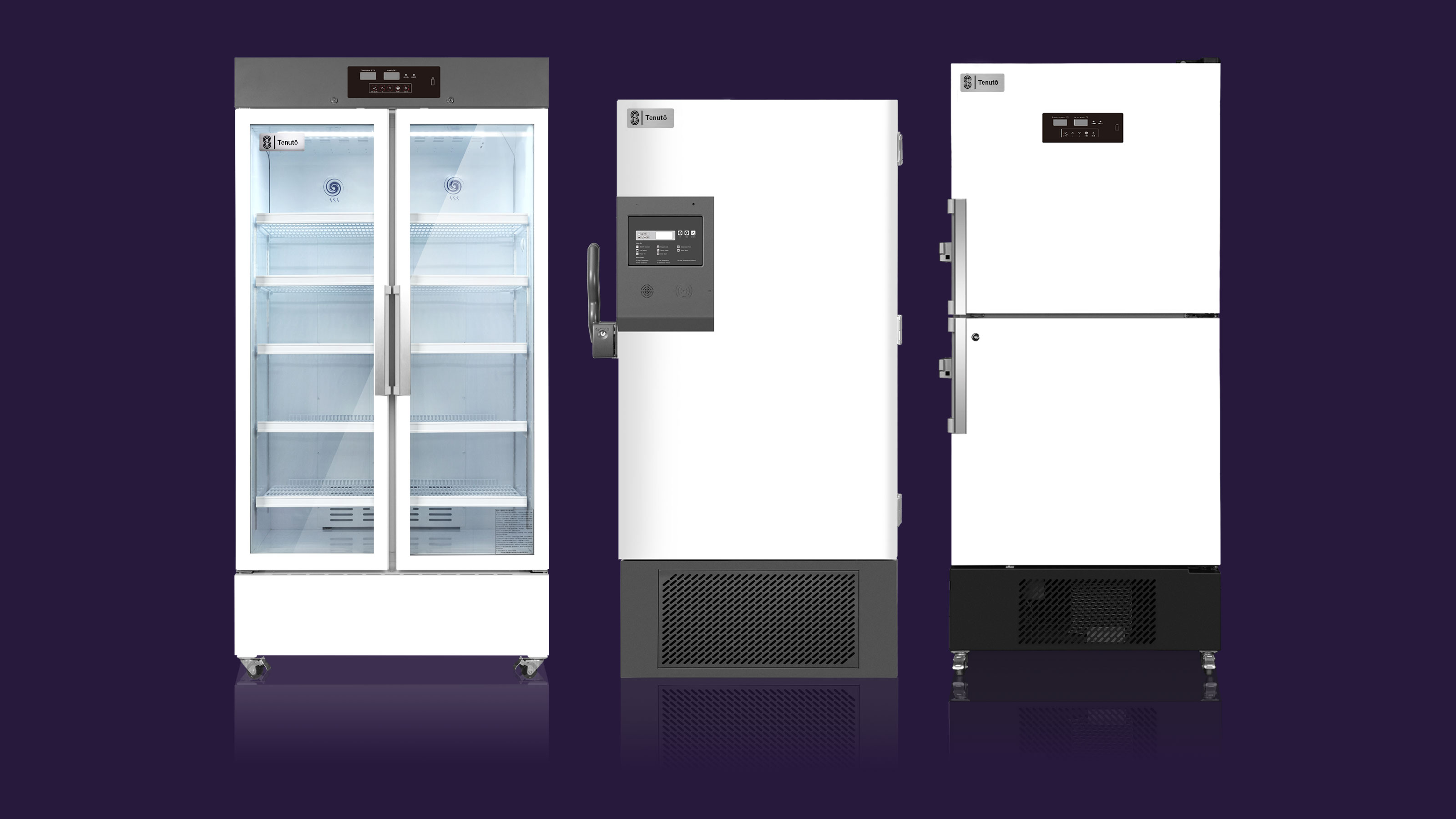Adam Tappen | 29 August, 2024
Adam Tappen, VP of Sales at TransLogic, a Swisslog Healthcare Compnay Reflects On His Career
At this point in my life, I've had sales responsibilities for well over 30 years. My path into a sales career wasn't well planned; in fact, it was barely intentional. However, it has been a winding path of experiences that have shaped me as a sales professional. This path is unique to me, but you may relate.
I get asked regularly, "How did you get into sales?" Like many people in sales, my journey has been long and winding, with experiences in various areas that somehow culminated in knowledge, experience, methods, and skills around sales that allow me to see more success than failure. Most notably, though, it wasn't planned, and maybe neither was yours.
In some ways, we are all born into sales. My sales colleagues may dislike this analogy, but from the time we are born, we have an inherent ability to get what we want—if we cry (the stereotypical whining salesperson), we get food or attention. It turns into selling Mom on "I'll be really good if you buy me candy" or selling grandparents on the undeniable fact that "my life would be so much better if you would just buy me this toy." Now, I'm not saying most salespeople act like children, though I've met some who do. To me, it seems that we all have inherent sales tendencies; we can make a pitch to get what we want. The question is, do you enjoy making a sales pitch, and do you want to make it a career?
In a more mature sense, we think of sales as the actual selling of a product, good, or service. In that context, my first real sales experience was working in a restaurant as a waiter. As a server, you are selling the restaurant, the chef, the different meal choices, yourself as a credible authority on the food, and, if you are really good, something extra like a popular appetizer, good wine, or an especially decadent dessert. You sell these goods and your services in hopes of gaining gratuity from the patron at the end of the meal. Ah, my first commission check!
Sales Is More Than Earning Commissions
Earning commission for your sales achievements can be a big motivator for many salespeople. While commission is a motivator, it should not be the only reason you get into sales. Furthermore, commission shouldn't even be in the top three reasons you are in sales.
In my opinion, people outside of sales generally think that commission is the main driver for someone being in sales. My experience is different. I believe most great salespeople have a passion for what they are selling and enjoy the benefit of selling something they love while getting paid commission for it. This, to me, is the sweet spot for a salesperson.
Personally, I really enjoyed working as a waiter. It stimulated me mentally and physically. A fast-paced environment, bringing the enjoyment of a good meal to people, being able to move around a lot, meeting all kinds of people, and finally, it is an occupation that pays pretty well compared to most of my teenage friends' jobs. What it unknowingly did was spark something in me that sticks with me today; it just wasn't apparent to me at that young age.
When the time came, I was off to college. Studying mechanical engineering, it was my goal to become an automotive engineer. At one point, I had a chance to work in the automotive industry, but it wasn't a good fit for me. This created a shift in my life; my goal was gone. So, I took the first job I was offered in a totally unknown field that I had no prior connection with. I was on my way to becoming a consulting engineer in the fire safety industry. As a consulting engineer, you have the luxury of getting exposed to many different situations. Two of my favorites were client meetings and securing new work to keep yourself (and maybe others) busy. In other words, two of my favorite work tasks were sales and sales.
This is when it occurred to me that I would likely enjoy a career more dedicated to sales. For me, the attraction was controlling my own outcome. If I could make sales happen, then I was (most likely) assured of a job. You see, when the widget salesperson doesn't sell enough widgets, the factory has to lay off the widget engineers and likely many others at the widget factory. But if the widget salesperson sells enough widgets, they will always have a job.
I left the consulting world and started work as a Business Development Manager selling for a large building products company. I spent the next 10 years in traditional sales-focused roles, all with the same company but in various roles. I spent time in individual contributor sales roles, team sales roles, managing a small sales team, managing a large sales team, managing a single product sales, and managing various product sales. During those years, I largely controlled my outcome, and it was wonderful! During that similar span of time, I saw friends and family lose their careers to business slowdowns.
Within the sales world, my biggest success and professional happiness were associated with larger, complex, and team sales work. I found myself gravitating towards the challenges of sales opportunities, but mostly enjoyed seeing the success of the sales team rather than my individual success. So, as I came upon another fork in my career road, I chose to dedicate myself to the sales leadership path versus the dedicated salesperson route.
I've now been in a sales leadership role for about 25 years and thoroughly enjoy the work. This point in my life is where I now recognize the connection to my days as a waiter and the beginning of a sales career. Interacting with all kinds of people and being responsible for my results are daily events for me. Even though I rely on a group of salespeople to do their job in order for me to keep mine, I can control my own destiny by doing my job well. But what is most important to me is seeing the pleasure I can bring to people by delivering a solution to their needs. In my case, that is freeing up salespeople to fulfill their maximum potential. That also unlocks the maximum potential for the company. I thrive in this work and look forward to a whole lot more of it.
If you are considering a sales career, I would ask you to think about the following:
- In what type of work do you find purpose?
- What industries excite you?
- Why do you think you are a good fit for sales?
- What aspect of sales excites you the most?
Things I Hear From Customers
As a sales leader, I try to observe sales situations, learn from them, and apply my experience for better outcomes for my sales team. Having now been in sales and sales leadership roles for well over 20 years, I can't help but think of some of the more common bits of feedback I hear from customers. I'll outline one particular point I've heard numerous times in hopes you can learn from my experience and achieve better outcomes for yourself.
I sometimes think customers have a list of speeches in a rolodex ready for every occasion. I've read similar stories of sports coaches, college sports coaches in particular, who have a portfolio of speeches that they recycle. The beauty of this for college coaches, in particular, is that every four or five years, they can reuse a speech they gave previously because there is nobody currently on the team who heard it when it was given six years ago. Speech 67 may be focused on dealing with the loss of a key player late in the season. Speech 99 may talk about rebounding from a difficult loss, while speech 32 emphasizes the importance of not letting one big win go to your head. In my sales career, I've heard a fair bit of repetition from customers as well. They may not be numbered speeches, but they are the "go-to" statements you may have heard yourself. And like those college coaches, customers can pull out each speech on each vendor or even repetitively every few years as a customer often gets a new account rep every 4-5 years.
One of my favorite speeches goes something like, "Out of all my vendors, your company is the hardest to do business with." Now, I've heard this statement dozens, maybe even hundreds of times, both directly from a customer and second-hand from a salesperson telling me what the customer told them. When I first heard this from a customer, I took it quite literally. Hearing it from other customers while at the same company, you start to wonder if it is true. But with the luxury of time and working for multiple companies, I now realize this is a common statement used to get action or a reaction.
As a salesperson, the part of this statement to take seriously is that you need to find ways to improve how you do business with your customers. A customer may reach a frustration level where, in that moment, you and your company are the hardest to deal with.
Let's get into a specific example of the "most difficult vendor" speech. Picture yourself in the final stages of negotiating a large contract with a customer. Leadership at your company has been pressing you to bring in "the big order" you've forecasted for the last two months. It is three days before your booking cutoff. The customer has scheduled a meeting to review the last few topics before they can award you the contract. It has already been a back-and-forth negotiation on several topics; you've won some, and you've conceded some points. You have almost every detail worked out, except your legal team wants the customer to exclude consequential









